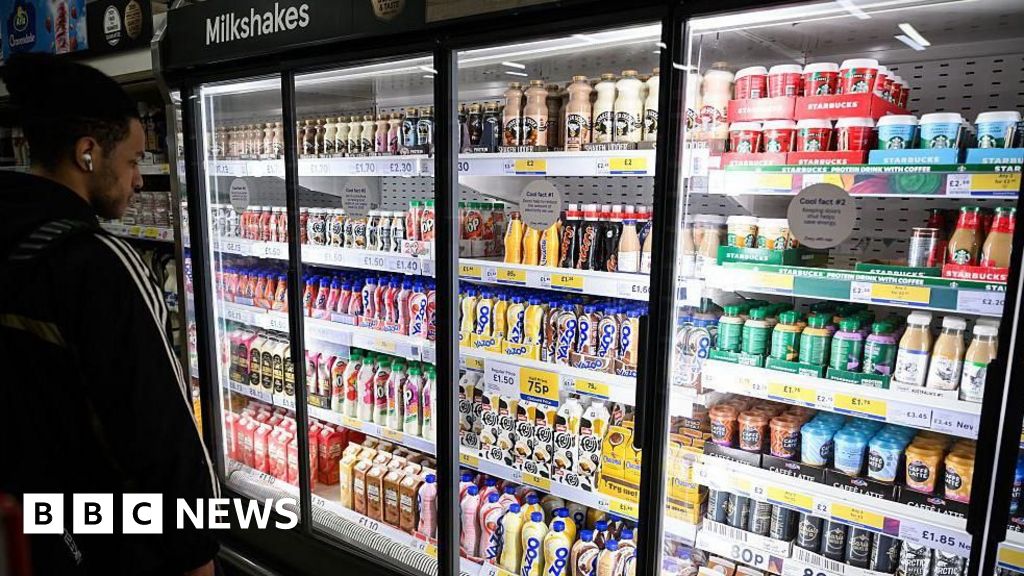Milkshakes and lattes are expected to be included in the government’s sugar tax scheme for the first time in the UK in a renewed attempt to help tackle obesity.
The sugar tax, known formally as the soft drinks industry levy (SDIL), is a tax on pre-packaged drinks such as those sold in cans and cartons in supermarkets.
How will it work?
Extending the sugar tax to milk-based drinks is expected to happen from April 2028.
The government says companies which makes these drinks will have to reduce the sugar they contain or face paying the tax.
That means they could either taste different (less sugary) or cost a bit more.
The tax was introduced by the Conservative government in April 2018 as a means to make diets healthier and tackle obesity, by cutting sugar intake.
What drinks are included?
The sugar tax applies to pre-packaged soft drinks with added sugar.
It already applies to most sugary and fizzy soft drinks sold in cans, bottles and cartons in supermarkets.
Soon, it could also apply to pre-packaged sugary milk-based drinks sold in supermarkets, such as milkshakes and lattes.
Milk-based drinks have been exempt from the sugar tax because they contain calcium, which is encouraged in children and young people’s diets.
However, the high sugar content of some milk-based drinks means the government is reconsidering that exemption.
The government has consulted on introducing a ‘lactose allowance’ to account for the natural sugars in the milk content of these drinks.
All milk substitute drinks, such as soya, almond or oat drinks, were previously exempt from the sugar tax if they contained 120mg of calcium per 100ml.
But if these drinks contain added sugars beyond those derived from the main ingredient, they would now be taxed.
What drinks are not included?
The sugar tax does not apply to drinks made and served in cafés, restaurants and bars. So coffees, lattes and other milky drinks made on café premises would not come under this tax.
Soft drinks made only with natural sugars, such as cows’ milk and pure fruit juice, are also not part of the tax.
Alcohol-free beer or wine, infant formula, drinks sold as powder and cocktails or mocktails served in an open container also don’t fall within the scope of the sugar tax.
How much do companies pay?
Currently, the tax is charged at 18p per litre on drinks containing at least 5g of total sugar per 100ml, and 24p per litre on drinks with 8g of sugar or more.
But the government has been considering bringing down the maximum amount of sugar allowed in drinks from 5g to 4g per 100ml.
What impact has the sugar tax had?
To date, it’s led to a 46% reduction in the sugar contained in soft drinks affected, the government says.
Nearly 90% of the market now contains less sugar than the level at which the tax applies.
But experts say there is still too much sugar in UK diets.
Free sugars should account for no more than 5% of daily energy intake, current UK advice says.
But the amount of sugar consumed in the UK is around double that. And obesity rates in children and adults show no signs of going down either, with nearly two-thirds of people in the UK overweight or obese.
This is what prompted the government to carry out a review of the tax, and extend it to milk-based drinks.
Source link : https://www.bbc.com/news/articles/c1w9jg89glro?at_medium=RSS&at_campaign=rss
Author :
Publish date : 2025-11-25 10:33:00
Copyright for syndicated content belongs to the linked Source.
